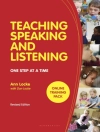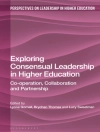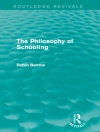The Arakmbut are an indigenous people who live in the Madre de Dios region of the southeastern Peruvian rain forest. Since their first encounters with missionaries in the 1950s, they have shown resilience and a determination to affirm their identity in the face of many difficulties. During the last fifteen years, Arakmbut survival has been under threat from a goldrush that has attracted hundreds of colonists onto their territories. This trilogy of books traces the ways in which the Arakmbut overcome the dangers that surround them: their mythology and cultural strength; their social flexibility; and their capacity to incorporate non-indigenous concepts and activities into their defence strategies. Each area is punctuated by the constant presence of the invisible spirit, which provides a seamless theme connecting the books to each other.
The death of a shaman in 1980 had an enormous spiritual and political consequences for one of the Arakmbut communities, resulting in a shift in its social organization from comparative hierarchy to a more egalitarian system. The author uses this case as an illustration to challenge the idea that indigenous peoples live in fossilized, static worlds. He shows that political activities in conjunction with shamanic communication with the spirit world provide the impetus and context for change.
Inhaltsverzeichnis
Series Preface
Preface
Introduction
Chapter 1.The Death of the Shaman
Chapter 2. Species and Spirits
Chapter 3. E’manoka’e – Curing
Chapter 4. Dreams and the Source of Knowledge
Chapter 5. The Politics of Shamanic Curing
Chapter 6. The Social Path from Desire to Power
Chapter 7. Generosity and Giving
Chapter 8. Encounters
Chapter 9. Social Change among the Arakmbut
Chapter 10. The Colonial Context of Social Change
Chapter 11. Internal Factors in Socio-Political Change
Chapter 12. The Invisible World and its Changeless Qualities
Conclusion
Orthography
Glossary
Bibliography
Index
Über den Autor
Andrew Gray was, until his untimely death in 1999, Tutor in Social Anthropology at the University of Oxford. He was also a leading activist in indigenous rights, advising the Forest Peoples Programme and the International Working Group for Indigenous Affairs (IWGIA) among other organizations.












